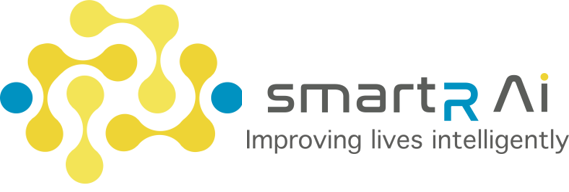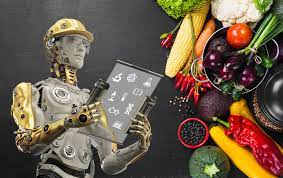Two of the main causes of unhealthy diets are a lack of education and a lack of resources. Yet, a lot of individuals now have access to both and still suffer from an unhealthy diet. Why is this? And how can AI redefine our relationship with food?
The World Health Organization defines an unhealthy diet as high in sugars, saturated fats, trans fats and low fibre foods. Diets such as these are linked to four of the world’s top ten leading risk factors causing death: overweight and obesity, high blood glucose, high cholesterol and high blood pressure. Given the dire consequences you would imagine we would be better at making healthier eating choices, but misguided assumptions often prevent individuals from making healthier choices. Assumptions such as: healthy food is too restrictive, requires skill to prepare and is too expensive. Junk food advertising campaigns do a great job at advertising ‘cheap comfort’ and the public health push for healthy eating can only do so much. Particularly given the difficulties involved in breaking unhealthy food habits that individuals have spent lifetimes creating, and the addictive nature of processed sugars.
The internet and dieting apps have certainly helped some individuals come a long way. Yet, the advent of AI in health and AI in wellness could completely change the way we choose our food. The ability to personalize nutritional suggestions is no longer restricted to stipulating whether you prefer pasta or rice. AI raises the possibility of including factors like individuals’ genetic information, biomarkers and lifestyle information to create perfectly tailored food suggestions.
Algorithms which create personalized eating plans according to individuals physiology already exist. Scientists are increasingly finding that there are a multitude of factors which explain why individuals react to food in different ways. Most apps currently in circulation focus on blood sugar. However, newer studies are incorporating more data such as “genes, the microbiome, biology and physiology, one’s environment, lifestyle, health history, psychology, and social determinants of health”. These will help to create algorithms which recommend dietary patterns which reduce blood pressure, resting heart rate and cholesterol.
Having a personalized diet mapped out for you is highly convenient, saves time and educates the individual on making healthier choices. There is already talk about implementing these personalized nutritional suggestions on food ordering apps and other platforms. Yet, it’s important to note there is very little research currently available from sources other than those selling the apps. Individuals should be wary of apps that boast they can go beyond predicting how food affects blood sugar and be aware of some of the risks involved with these apps.
One risk to consider is that the accuracy of the apps is dependent on the completeness of their nutritional data bases. Furthermore, the apps could also raise privacy concerns given the highly personal nature of the information collected about individuals. This is where the importance of secure and trustworthy AI comes into play. Not to mention that the high costs involved with the subscription will make the apps inaccessible to many. Finally, what makes the AI algorithms different? Most of us ignore advice given by doctors encouraging us to eat healthy, so why would we treat advice from an AI any differently? It would seem that these apps would only really affect those with no choice but to improve their health and those who already place value on a healthy diet.
It should be noted that nutritional apps are not the only exciting AI food-related product being developed. AI is helping to improve food security through automated harvesting, weather forecasting, soil health monitoring etc. Machine learning is also being used to predict food demands in supermarkets, thus, reducing food waste. It is also accelerating the development of dietary supplements. For example, an AI-supported food development platform is being used to add textures and flavours to plant-based products.
smartR AI is also leading the way in creating trustworthy AI, which prioritizes the protection of individuals data. For example, its new product SCOTi® AI ensures maximum data privacy and security as it is a self-hosted platform.
There are clearly a number of exciting new developments in AI in health and wellness.
Is it so difficult to imagine a future where we choose our food just based on what is best for our individual physiology? AI will certainly re-define our relationship with food, although perhaps not for all.
Written by Celene Sandiford, smartR AI

